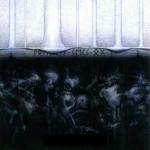Let's take a quick look at some of the other negotiating periods with NK.
In 1994:
According to the deal, North Korea would dismantle its reactor at Yongbyon, the source of its plutonium, in return for two civilian light water nuclear power stations, generally seen as less of a proliferation risk. Until those reactors were built, North Korea would receive shipments of US-financed fuel oil.
From such tentative beginnings, the Agreed Framework would last nearly nine years, but its implementation would be a constant struggle. A Republican-dominated Congress did its best to slow down fuel deliveries, and the construction timetable for the reactors was continually postponed.
It later emerged that North Korea had been cheating by pursuing a secret uranium route to making a bomb. That was enough for the hawks in the Bush administration, John Bolton among them, to kill off the Agreed Framework.
The accordís defenders suggest that the uranium enrichment programme was the regimeís hedge against the US reneging on the deal, and it could have been closed down through negotiations. They also argue that the Agreed Framework held back the weapons programme for most of the 1990s.
Christopher Hill, who became the Bush administrationís chief negotiator with North Korea, disagreed with the decision to end the Agreed Framework. ďMy own view is we lost control of the plutonium process, we lost inspectors on the ground. We lost the capacity to understand what was going on there,Ē Hill said.
In 2005
Those negotiations eventually led to a 2005 joint statement of principles to guide future negotiations, which included some of the elements of the Agreed Framework, such as the eventual provision of light water reactors, and a lot of language that will be on the table in Tuesdayís talks between Trump and Kim.
The statement called for ďthe verifiable denuclearization of the Korean Peninsula Ö in a phased manner in line with the principle of Ďcommitment for commitment, action for action.íĒ
The joint statement once more raised hopes that the US and North Korea had turned a corner in their relationship, but it began to fall apart almost immediately. Within weeks, the US Treasury imposed new sanctions, freezing $23m (£17m) in North Korean assets in a bank in the Chinese territory of Macau, using counter-terror legislation. It was a relatively small amount of money, but it infuriated the North Koreans and the Chinese, who saw it as a violation of the spirit of the joint statement. US diplomats who had negotiated the 2005 statement were also taken by surprise.
ďI think itís fair to say that one part of the US government was not particularly in touch with another part of US government, not for the first or last time,Ē said Hill, who saw it as an act of sabotage by hawks such as Bolton in the Bush administration. ďI think the real purpose of it was to screw up the negotiations.Ē
2012:
Kim Jong-un has struck one deal with the US, in February 2012. Under the Leap Year agreement, the regime undertook once more to suspend enrichment in Yongbyon under IAEA verification and to suspend nuclear and missile testing, in exchange, the Obama administration pledged to send food aid.
Once more, the deal fell apart within weeks when North Korea conducted missile launches, which it insisted were for satellite deployment. The US deemed them a breach of the Leap Year agreement and halted plans to send food aid.
https://www.armscont...heets/dprkchron
https://www.theguard...ingapore-summit
At no point during all of these negotiations has an American President met with the NK leader. That was always a carrot to only be delivered if NK met conditions. Also at no point has anyone ever referred to the yearly joint drills as war games. Anyone other then NK and China. So Trump met with Kim and got nothing in return other then a vague promise of action. There was no inspectors, no timetable no action from NK of any kind in order to meet with the President of the US. Then there is no inspectors timetable for halting of the joint drills. Both of those are huge give aways. Now if Trump changes his mind on the joint drills NK and China will be able to say see they weren't going to keep their word anyway.
Lose US - Win NK.

 Help
Help























